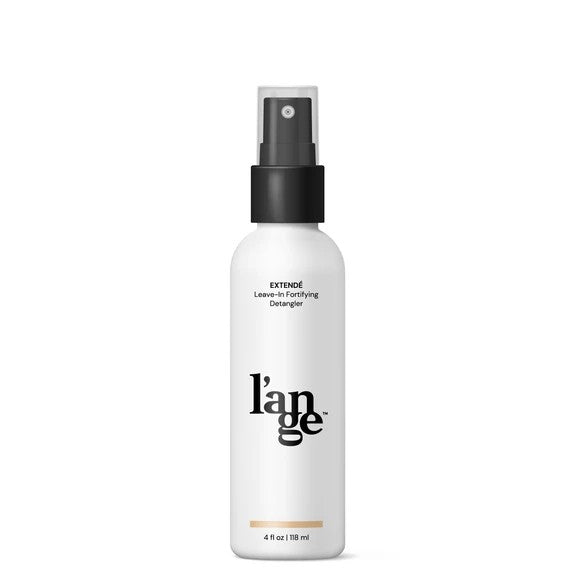You may be causing more damage than you realize
Hair brushing may seem like one of the most simple and intuitive things that we do on a regular basis.
Many of us have been brushing our hair since we were children and learned how to do it by watching our parents.
While this act of grooming is essential in maintaining the health and appearance of our hair, it can also expose our strands to more damage than we’d like.
The good news is: implementing some better techniques when it comes to brushing your hair will help keep it looking and feeling fantastic.
Let’s explore some of our favorite hair brushing tips and tricks to help you minimize damage and get the best results from your trusty brush or comb.
HOW TO BRUSH WET HAIR
Hair is most vulnerable to breakage when it’s wet. For this reason, you’ll want to be extra careful when brushing in this state.
Start out by towel drying your hair to remove excess moisture. We like using a microfiber hair wrap towel, which cuts down on static and frizz and helps your hair dry faster.
Next, apply a leave-in conditioner to help your brush or comb glide right through your hair.
L’ange offers 4 distinct varieties, which come down to personal preference:
Réplenish Conditioning Spray – A light spray conditioner that eliminates tangles and leaves hair silky soft.

Envie Biotin Leave-In Conditioner – A gel-cream conditioner that’s fortified with biotin to help strengthen hair as it detangles.

Extendé Leave-In Fortifying Detangler – Containing silk protein, this spray softens and strengthens hair, making detangling a snap.

Dream Creme Intensive Reconditioning Treatment – This rich, creamy leave-in features keratin and borage oil to nourish and condition coarse, dry and damaged hair.

CHOOSE A TOOL THAT’S SUITED TO DETANGLING WET HAIR
If you prefer working with a brush, we’d recommend the Flexi Vented Brush for fine to medium hair and the Wide Vented Brush for medium to thick hair.

These flexible brushes are designed to move and bend with the hair as you brush, which helps to minimize tugging and breakage.
If you prefer using a comb, try our Detangling Comb with wide-spaced bristles to gently detangle your damp strands.

This comb works exceptionally well on curly hair as it helps to remove knots and tangles without disrupting your curl pattern.
TRY A BETTER BRUSHING TECHNIQUE
You may be inclined to start off by brushing from root to tip, but just don’t do it!
See, when you start from the top down, you put more strain on your follicles and you also have a much larger surface area to cover.
This can result in hair being pulled and a higher likelihood of hitting snags, which can cause hair to break.
A good all around hair brush that may be used on damp or dry hair is our Paddle Brush with Nylon Bristles.

Start a few inches from your ends and brushing in short strokes, work your way upward to remove any tangles.
Another tip is to gather your hair and hold it around the midshaft as you brush the ends using your dominant hand. This helps take even more strain off of your follicles.
HOW TO BRUSH DRY HAIR
The same is true as above, start from the bottom and work your way up the hair shaft, gently removing tangles as you go.
Once you’ve removed the tangles, try gently brushing (daily or every other day) from roots to ends with our Paddle Brush with Boar.

This technique, paired with the 100% natural boar bristles help to distribute oils from your scalp throughout your hair, leaving it softer, more manageable and ultra shiny.
STOP OVER-BRUSHING YOUR HAIR
The main goal in brushing your hair should be to remove tangles and help keep your hair looking lustrous and healthy.
Brushing beyond the need to detangle can have adverse effects on our hair by overstimulating oil production at the scalp, causing excessive breakage and roughing up hair’s cuticle, which can lead to dullness, static and frizz.
Curly- and coily-haired gals also can benefit from putting the brush or comb down once their hair begins to dry.
It’s best to brush or comb curly hair only when it’s wet, especially while distributing styling products throughout.
As the hair begins to dry, brushes and combs can break up your natural texture and cause hair to frizz.
Instead, try using your fingers to gently rake out your curls, which produces a smoother, more defined end result.
CLEAN YOUR BRUSHES & COMBS REGULARLY
Just like you’d clean your makeup brushes, it’s a good idea to clean your hair brushes and combs.
A good cleaning (as needed) will help keep your brushes and combs free of dirt, oil and product buildup.
This will ensure that the teeth and bristles continue to glide effortlessly through your hair and provide you with your ideal results.
It’s really simple! Peep the video below for a DIY brush bath that involves some water, rubbing alcohol and your favorite L’ange shampoo!

All in all, implementing some proper brushing techniques will help keep your hair healthy and happy.
It all starts with choosing a high quality hair brush that meets your hair’s specific needs and your styling goals.
The key is to be patient and gentle while brushing, so your hair ends up looking and feeling the way you want.
